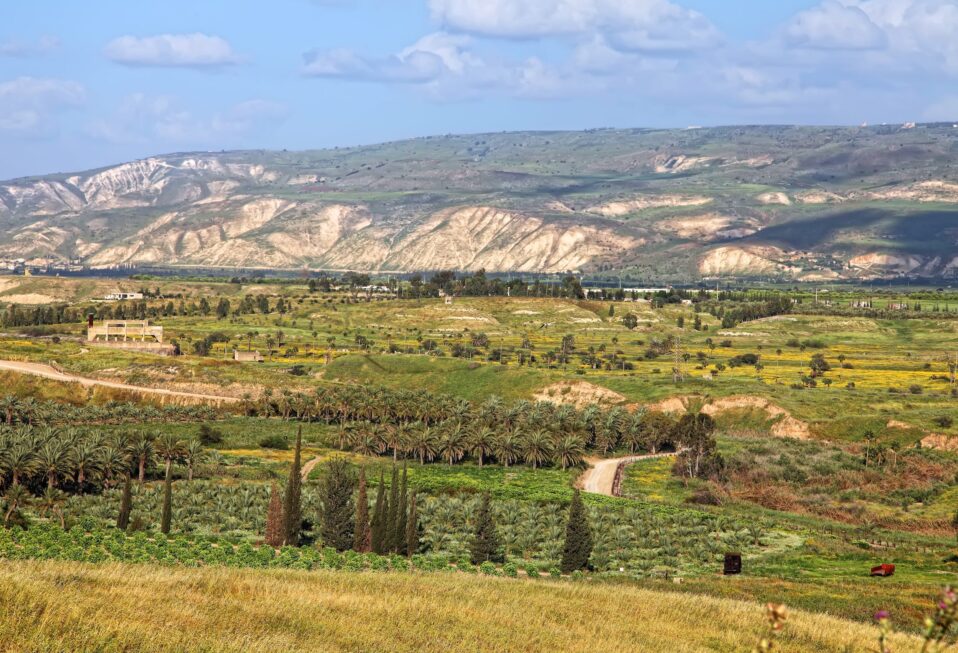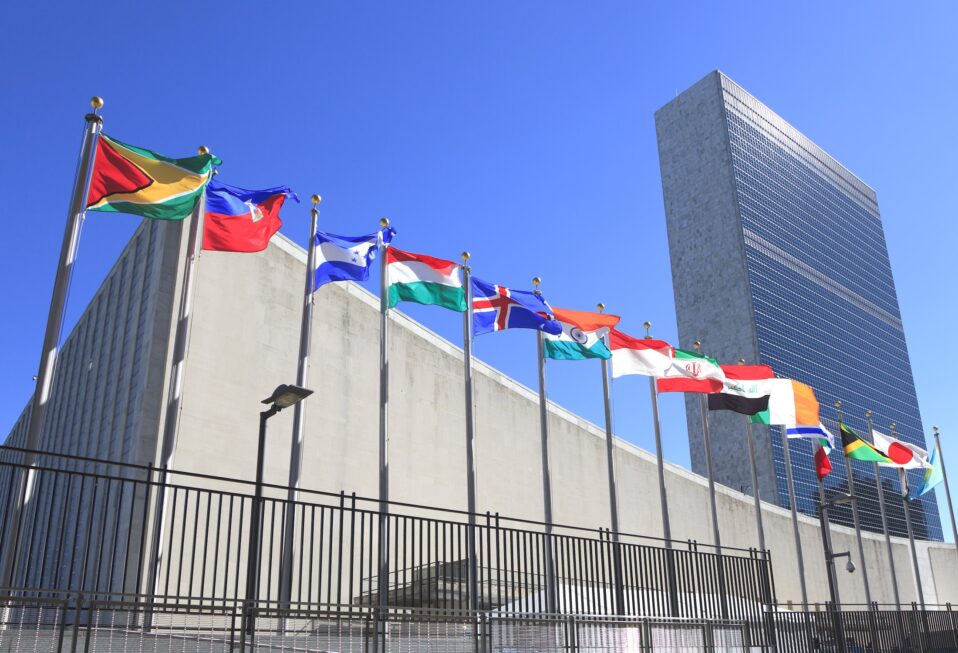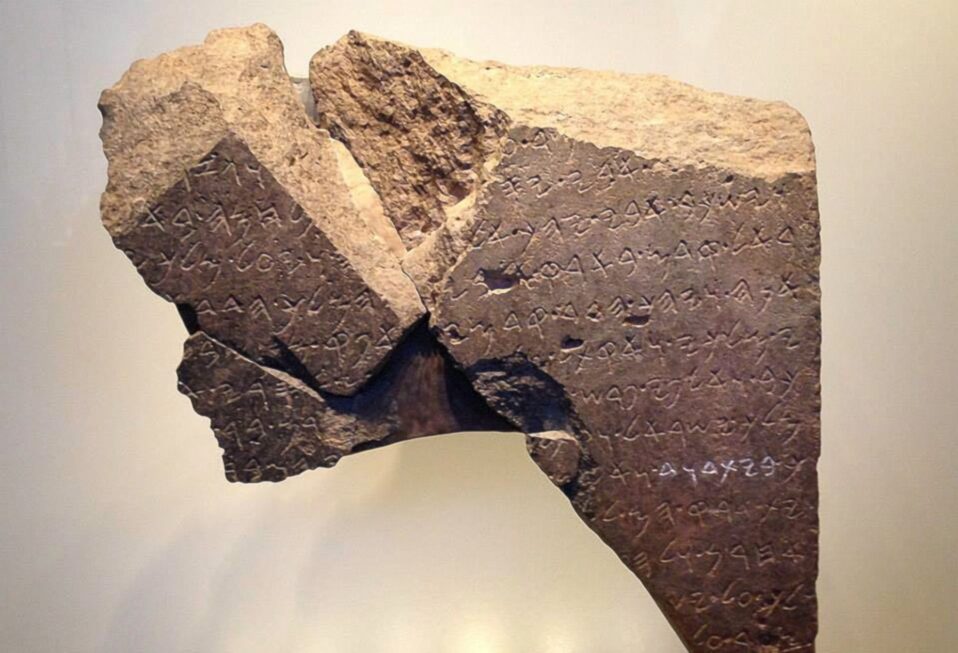By Arlene Bridges Samuels
Calling Israel “Palestine” is commonplace today. However, the history of that name goes back millennia. First coined by the ancient Greeks for the five-city area in the Philistine confederacy and then adopted by Roman emperor Hadrian, Palestine was more recently copied by former Palestinian Liberation Organization (PLO) Chairman Yasser Arafat in the last century. Arafat’s use of Palestine and Palestinians has expanded into a propaganda machine that is successfully echoed worldwide, as part of an effort to eradicate all Jews.
But first let’s consider one of its earlier and notable uses. The Roman emperor Hadrian reigned for 21 years between 117-138 A.D. From 132–136 A.D., a Jewish messianic figure, Bar Kokhba, led a revolt against Hadrian that resulted in the deaths of more than half a million Jews in their desperate bid for independence from their pagan conquerors. But their valiant attempt was in vain against the overwhelming power of Roman legions.
Hadrian’s genocidal ambition intensified when he then decided to strip the Jews of their biblical name. He sought to change their identity and sever them from their ancestry by renaming the land Syria Palestina after the Philistines in the Bible—enemies of Israel, although not Arabs. Hadrian then made it worse. He renamed Jerusalem—the already 1,000-year-old Jewish capital—Aelia Capitolina and turned it into a pagan city.
While Bible translations and methods differ, the name Israel is said to appear in its pages over 2,500 times. In Genesis 32:28, we read an example of God’s official nomenclature when Jacob wrestled with God: “Your name will no longer be Jacob, but Israel, because you have struggled with God and with humans and have overcome.” The title Palestina or Philistines is only briefly mentioned eight or so times in the Old Testament and nowhere in the New Testament.
The League of Nations, the precursor to the United Nations, identified Great Britain as a kind of “manager” of Israel after World War I. The Ottoman Empire’s defeat had led to the Sykes-Picot Agreement, where two men—Sykes (a Brit) and Picot (a Frenchman)—were commissioned to carve up the Middle East for Great Britain and France. They kept the name Palestine, although in a 1938 report to the League of Nations, the British made this important distinction: “The name ‘Palestine’ is not a country but a geographic region.”
In pre-state Israel, when Jewish people began making Aliyah in high numbers, they adopted the name. In 1932, their newspaper was called The Palestine Post. Their first symphony orchestra (1936) was called the Palestine Orchestra. Then, in 1948, the orchestra changed its name to the Israel Philharmonic Orchestra, and The Palestine Post also later became The Jerusalem Post in 1950.
The world embraced the name Palestine until May 14, 1948, when Israel’s founder and first Prime Minister, David Ben-Gurion, made the historic announcement of modern statehood at a Tel Aviv art gallery (now Independence Hall). He sent a message of reunification and correction between ancient and modern Israel when he announced the name of the world’s re-established Jewish state: Israel.
Other names had been considered prior to May 14, 1948—names such as Judea and Zion. Ben-Gurion took a vote among his cabinet-in-waiting. After much debate, and with time running out, they voted favorably for the ancient name. Some thought that Ben-Gurion was especially drawn to the name since the Bible is filled with the name Israel. Although Ben-Gurion was an excellent student of the Bible, he was secular in his views. Nevertheless, in naming the modern Jewish country Israel, he recaptured the correct name, rescuing it from Hadrian’s identity theft 2,000 years earlier. My view is that God moved in the minds and hearts of Ben-Gurion and his cabinet.
Yet just two decades later, another identity thief was on the move. The power of Egyptian-born Yasser Arafat began expanding into a 35-year reign of terror that was masked by smiles and lies, although they were obvious to those who saw through his clever smokescreen. Arafat grew up under the tutelage of his great-uncle Haj Amin al-Husayni, a Nazi collaborator who became Grand Mufti in Jerusalem. Arafat learned his lessons well.
The Committee for Accuracy in Middle East Reporting and Analysis (CAMERA) has created an informative timeline about Arafat’s terrorism. One of Israel’s newspapers, Yediot Ahronot, carried his revealing statement made at a rally near Bethlehem on October 23, 1996: “We know only one word: jihad, jihad, jihad.” Jihad is a struggle or fight against the enemies of Islam.
On February 4, 1969, Arafat took over the PLO. A master of propaganda, he took the name Palestine and turned it into a new group of people—Palestinians—and a new country: Palestine. They were and are Arabs, still living in an Arab dictatorship alongside one and a half million Israeli Arabs who live free in a democracy.
Then, both directly and indirectly, he advanced numerous terror acts that included airline hijackings and the Black September murders of Israelis at the 1972 Munich Olympics. The world did not know about Arafat’s arrival at the United Nations headquarters November 13, 1974, until minutes before he spoke at the General Assembly. He walked into the lobby wearing a holster and gun. (He was asked to leave the gun at the entrance.) In his speech, he said he “held an olive branch in one hand and a pistol in the other.” It was a half-truth. The olive branch imagery was fake.
Sadly, every U.S. and Israeli leader failed to reach a peaceful resolution to Arab-Israeli conflicts. Instead, terror went into overdrive during the Second Intifada (2000-2005), when more than 1,000 Israelis were murdered. When Arafat died in 2004, Mahmoud Abbas, his partner in terror for 40 years, took over. Abbas remains intransigent, wielding a corrupt dictatorship over his “Palestinian” population while running a kleptocracy like Arafat’s, pocketing millions of dollars while the terrorist activity he incites continues.
Truth about the PLO’s terrorist intent has leaked out over the years from Arab leaders in that organization. Arab countries that have signed on to the Abraham Accords have grown impatient with the Palestinians. But even before then, in 1977 PLO spokesman Zahir Muhsein made a statement that should be heeded to this day. In an interview with the Dutch newspaper Trouw he declared, “The Palestinian people does not exist. The creation of a Palestinian state is only a means for continuing our struggle against the state of Israel for our Arab unity. … Today there is no difference between Jordanians, Palestinians, Syrians, and Lebanese. Only for political and tactical reasons do we speak today about the existence of a Palestinian people.”
Yes, the Palestinians are Arabs. Nothing has changed since Zahir Muhsein’s 1977 statement except that Gazan Arabs are now ruled by Hamas terrorists and much of the Palestinian population under Abbas still suffers from a corrupt leadership that funnels hate for Jews and Israel through their media day and night.
In conclusion, while Roman Emperor Hadrian, former PLO Chairman Yasser Arafat, Palestinian Authority President Mahmoud Abbas, and all Boycott, Divestment, and Sanctions (BDS) activists shout the name Palestine, it is not a country.
The Holy Bible, the very words of God, tell a different, profound, and world-changing story. It is an enduring story of God’s land, a land He calls Israel. He deeded it to the Jews and equipped them to serve as the ancient vessels for our Scriptures and our Jewish Savior. Today, Israel and Israelis remain a light to the nations with innovations bordering on the miraculous to bless the world.
Please join CBN Israel in prayer this week for the Israeli and Palestinian people:
- Pray with thanks that we can trust the Bible as it clearly expresses God’s intent for the land to belong to the Jewish people.
- Pray for the Arabs suffering under President Abbas and Hamas.
- Pray for new, fresh leaders who will initiate policies that provide help and hope for Palestinian Arabs.
- Pray for the Abraham Accords that it will continue to prove to the world that Israel and the Jewish people desire peace with their Arab neighbors.
Praying for the nation of Israel today, let’s recall the history of Israelite slavery in Egypt. God spoke to Moses saying, “I have surely visited you and seen what is done to you in Egypt; and I have said I will bring you up out of the affliction of Egypt to … a land flowing with milk and honey.” (Exodus 3:16-17). God’s word is eternal.
Arlene Bridges Samuels pioneered Christian outreach for the American Israel Public Affairs Committee (AIPAC). After she served nine years on AIPAC’s staff, International Christian Embassy Jerusalem USA engaged her as Outreach Director part-time for their project, American Christian Leaders for Israel. Arlene is now an author at The Blogs-Times of Israel and has traveled to Israel 25 times. She co-edited The Auschwitz Album Revisited by Artist Pat Mercer Hutchens and sits on the board of Violins of Hope South Carolina. Arlene has attended Israel’s Government Press Office Christian Media Summit three times and hosts her devotionals, The Eclectic Evangelical, on her website at ArleneBridgesSamuels.com.














